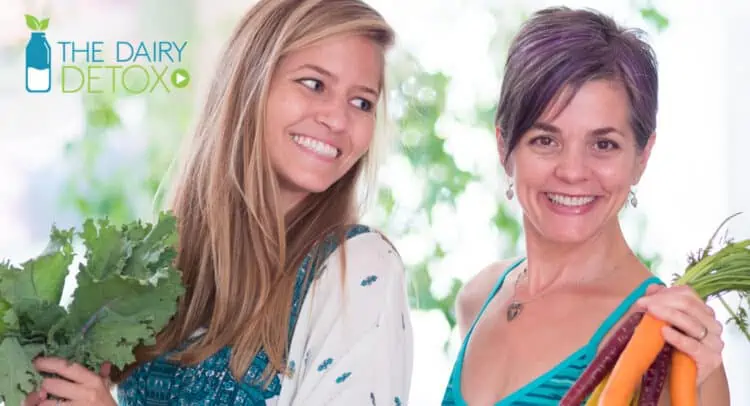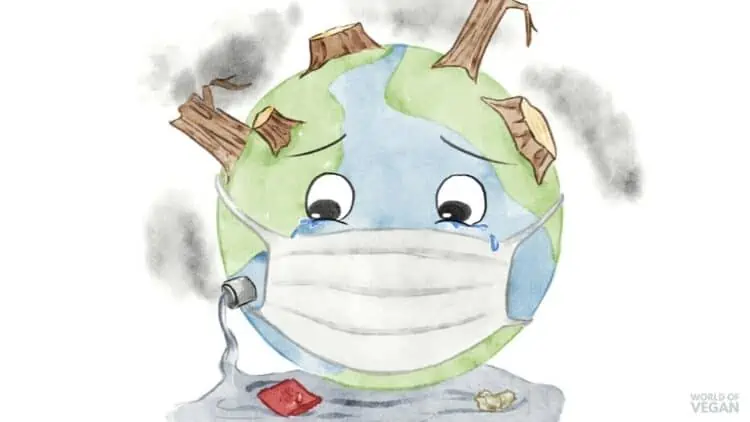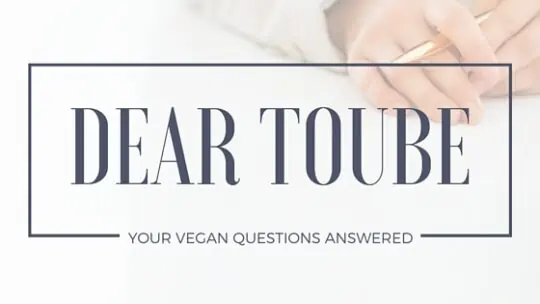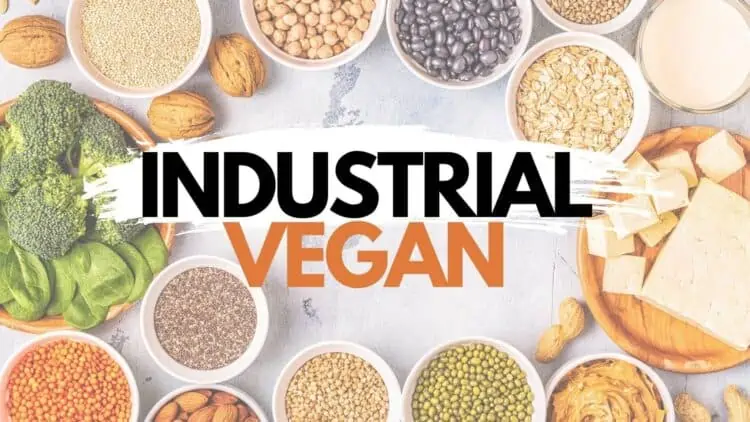Can Dogs Be Vegan? This Lawyer Left Her 10-Year Career to Find Out
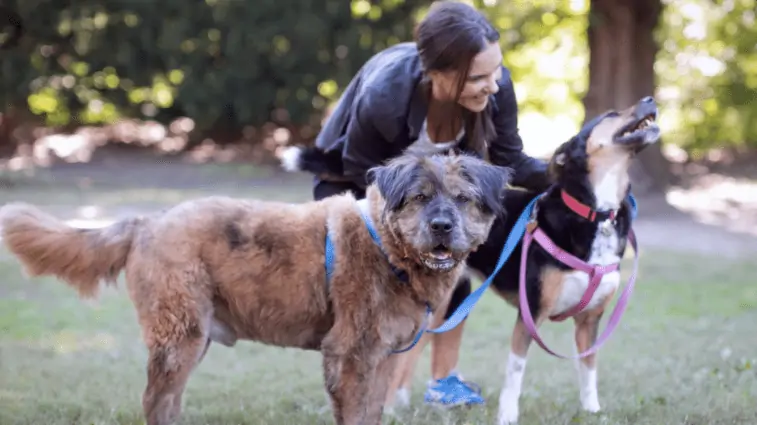
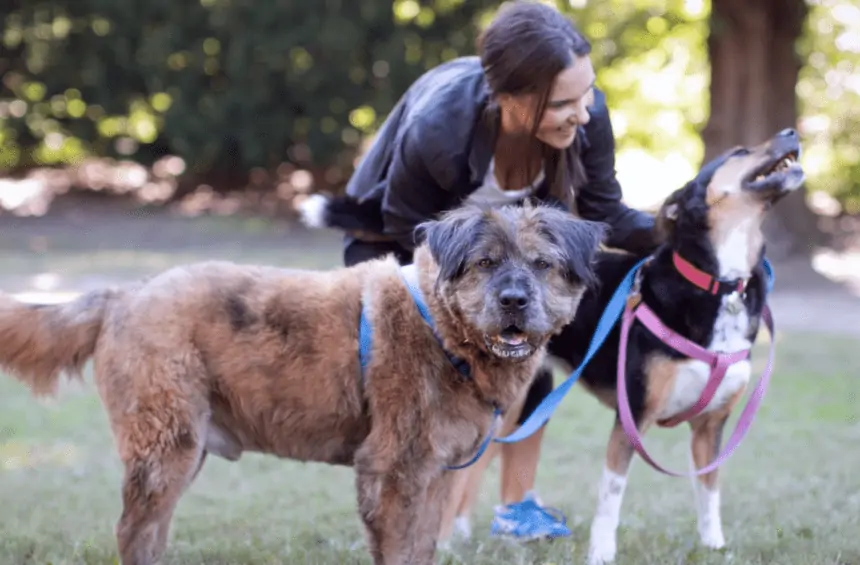
It can feel very empowering to adopt a lifestyle that’s cruelty-free and better for the planet and humanity. After all, once we break through all the barriers—the false beliefs and naysayers and worries about what we’ll eat and how we’ll get enough protein—we inevitably come to find that the same vegan diet that’s kinder to animals and to our world is also optimal for our own health.
No matter what issue you care about—health, longevity, global warming, human exploitation, animal exploitation, worker conditions, world hunger, poverty…the solution to all of them seems to be the same: go vegan. There’s simply no good reason not to go vegan…if you’re human.
But what about dogs?
I started to think about that question—what about dogs? I realized that I had completely closed the door to my ethics when it came time to feed my two adorable fluffy senior dogs, Bryn and McGruff. Because dogs are carnivores, right? Dogs need to eat meat…right?
Aren’t Dogs Carnivores?
I assumed, as I think most people do, that dogs are carnivores. But after putting my law degree to work researching our canine companions, I learned that dogs are not in fact carnivores. They’re actually omnivores, like us!
Dogs, although technically classified in the Order Carnivora, have evolved alongside humans over thousands of years to become omnivores. All those centuries of begging for table scraps from their human neighbors changed their biology. Now, not only can domesticated dogs eat those leftover lentils and beans, but they can thrive on them.
I know that may sound kind of crazy—it did to me at first—but think about it. If wolves could be selectively bred to become pocket-sized Chihuahuas, you better believe a lot has changed on the inside and in their gut too. Domestic dogs that hover eagerly by our sides today are nothing like their ancestral wolves that roamed the earth some tens of thousands of years ago.
Okay, okay, but what about that “Order Carnivora” thing? And those big canine teeth that our companion dogs prance around with? Surely they’re designed to tear flesh, right?
Well, consider this. The giant panda, also in the Order Carnivora, and also with very large canines, is a strict herbivore! As veterinary nutritionist Dr. Cailin Heinze has explained:
“Compared to true carnivores, dogs produce more of the enzymes needed for starch digestion, have much lower protein and amino acid requirements, and can easily utilize vitamin A and D from plant sources, just as people do.” – Dr. Heinze
Why Am I Still So Unsure That Dogs Can Be Vegan?
Despite learning that dogs are omnivores, I still had this blood-thirsty image of carnivorous dogs. And of course I did! This image was reinforced every time I walked down the pet food aisle and saw the dog food bags portraying domesticated dogs as closely associated with wolves. I started to wonder how much of my beliefs were based in truth, and how much was just marketing.
So I dove in. I wanted to find out whether I could feed my dogs, Bryn and McGruff, in a way that’s healthy and delicious for them and also reflects my values of compassion and sustainability. I didn’t know what I would learn and ultimately decide to feed Bryn and McGruff, but I knew that their health came first.
When it comes to diet, I learned that the commonly-used image portraying dogs as meat-lusting wolves is wildly offbase. A 2013 study that compared all the genes in a dog’s DNA to those in a wolf found that one of the key genetic differences between dogs and wolves is that dogs are better able to digest starches. Ah-hah! Fascinating. My interest was peaked, and I dug deeper.
I discovered mounds of evidence that dogs evolved from wolves by eating more plant material. And ultimately, I learned that a plant-based diet was not only okay for dogs, but could be healthier for them too!
Can Dogs Really Thrive On An Exclusively Plant-Based Diet?
At this point, I was convinced that dogs could eat a plant-based diet. But could they thrive on one?
That’s when I started to research what’s actually in commercial dog food. And what I found brought my jaw to the floor. I was horrified.
Most commercial pet foods contain rendered meat (aka “meat meal”) which is made from animal remains that are unfit for human consumption. Some dog foods even contain small levels euthanasia drug, suggesting that there may be dead pets in your pet food. I didn’t believe this at first, but the thought was validated when I learned that euthanized dogs can be sent to rendering plants and pet food manufacturers aren’t required to specify the type of animal in their “meat meal.” And pentobarbital, a euthanasia drug, is the source of many pet food recalls.
What About “Premium” Dog Food?
Even the most premium pet foods, which do better by using “human grade” meat, fall short of what our pets deserve. That’s because “human grade” meat is the same processed meat from factory farms that we have been steadily rejecting in our own diets.
We know it’s unhealthy, loaded with cholesterol, and oftentimes also filled with pesticides, hormones, and antibiotics. We know these low-grade meats are linked to cancer, heart disease, and all sorts of other diseases in humans. So how can they be so good for dogs?
The answer is simple: they’re not.
What’s So Great About A Plant-Based Diet for Dogs?
Dogs thrive for all the reasons we thrive by eating more plants and less meat. Plant protein is a clean protein that’s not plagued by all of the contamination-risks and diseases associated with animal protein. Plant-based proteins contain no antibiotics, no growth hormones, and often significantly lower doses of pesticides and other harmful contaminants.
In fact, one of the longest-living dogs in history was Bramble, a vegan dog who lived to be 25!
Satisfied that Bryn and McGruff could thrive on a plant-based diet and now completely distrustful of the pet food industry, my mission to remove meat from their diet took on a sense of urgency.
The Making Of A Better Dog Food
I decided that wanted to feed Bryn and McGruff a complete and balanced diet filled with plant-based fresh food, at least in part. But I couldn’t find what I was looking for. It didn’t exist! So again, I got to work.
I hired a board-certified veterinary nutritionist to formulate exactly that. I wanted to give Bryn and McGruff food that had all the meaty texture and flavor and smells they were used to, yet completely derived from plants. We created a diet for Bryn and McGruff that, like my own, is full of fresh plant-based foods, hormone and antibiotic free, and, best of all, cruelty-free and better for our planet.

Bryn and McGruff love it, and now I want to help more dogs, and their humans, and farmed animals, and our planet, benefit from what we’ve made. That’s when I started Bramble.
Bramble Is On A Mission!
My goal is to inspire us all to be more conscious about the food we feed our pets. To drive a deeper conversation about the pet food industry and their stake in animal agriculture. And to provide dog lovers with a veterinarian-formulated plant-based fresh dog food that they can trust.
I believe in this so much that I’m going all in, leaving behind my ten-year career as a lawyer to start Bramble. People tell me I’m crazy, but I don’t see any other way. A better dog food is needed, and I am committed to bringing it to life.
We ran a successful Kickstarter campaign in 2018 and are excited to bring this to the masses. I can’t wait for people to see how much their dogs love it.
http://kck.st/2zCd7PA
No longer do I need to close the door on my ethics when I feed Bryn and McGruff. Now I feel wholly comforted knowing that their food is nourishing their bodies without causing harm to our the planet or animals.
Article written by Amanda Rolat. Photos by Real Happy Dogs.

